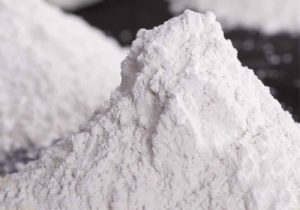
CP-10 Organoclay
CP-10 organoclay is a rheological additive made of organoclay. It is used in non-polar to moderately polar aliphatic and other solvent systems
Rheology Modifier Uses : Are you trying to improve the rheology of your ink? A rheology modifier is an ingredient used to control ink viscosity, which includes yield stress and viscosity at different shear modes and rates. A rheology modifier can be used to change the rheology profile of your ink so that it yields mo
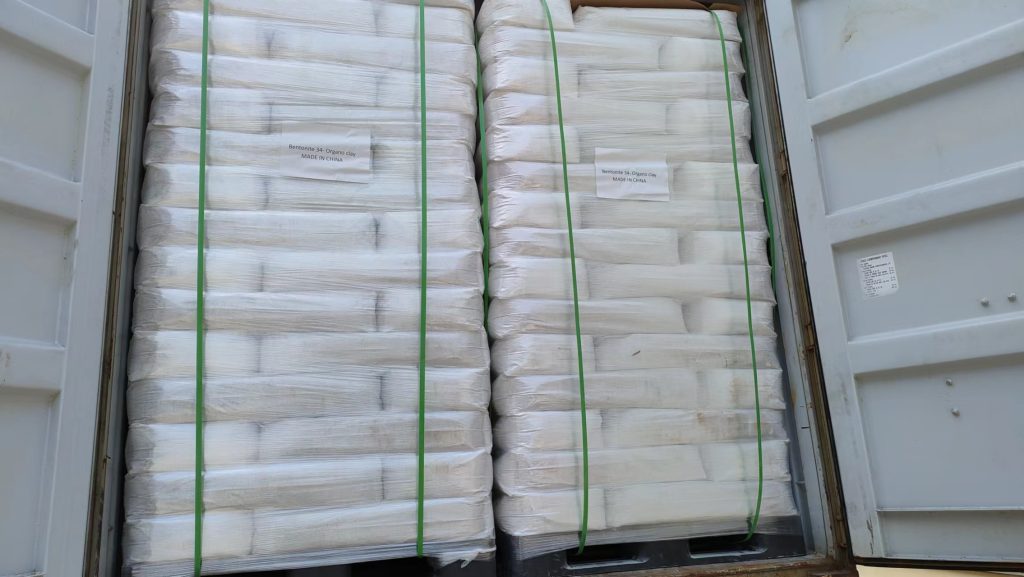

CP-10 organoclay is a rheological additive made of organoclay. It is used in non-polar to moderately polar aliphatic and other solvent systems

CP-MPZ organoclays is an modified bentonite that is used in solvent and resin systems ranging from non-polar to highly polar.

The CP-MPS rheology modifier is a type of organo clay rheological additive that is used in solvent and resin systems ranging from non-polar to high polarity.
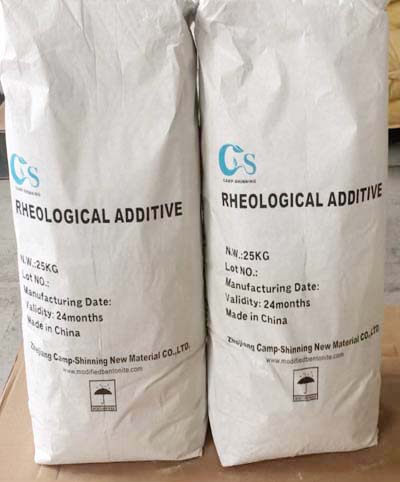
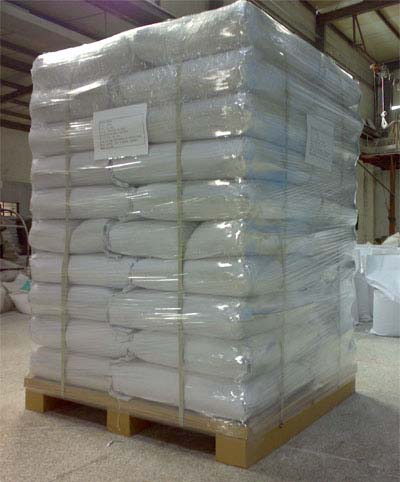
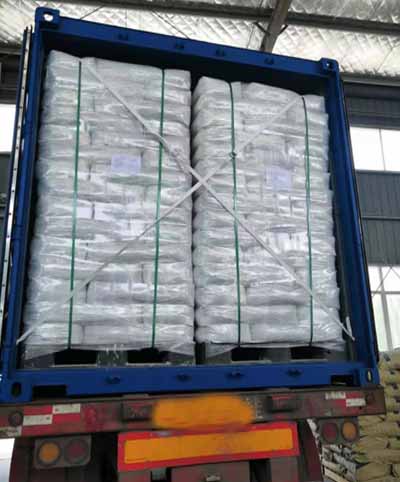
Organoclay Supplier / Manufacturer :
Internet address: https://www.rheologymodifiers.com/
Email address: [email protected]
Whatsapp / Wechat: +86-13185071071
Organophilic Clay Supplier / Manufacturer :

CP-EW Organoclay for Water Based paint. It is primarily employed in water borne paint systems,such as latex paint. So it is a good water based additive in paints,coatings,grease etc.

CP-EWS Modified bentonite It is employed in a water-borne coatings system. CP-EWS organoclay outperforms CP-EW in terms of thixotropy, transparence, and dispersion.

CP-WBS Rheology Modifier is rheological modified bentonite. It is mostly employed in water-borne systems.


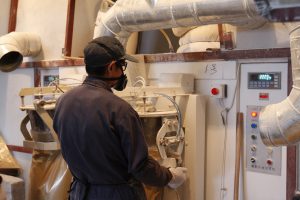
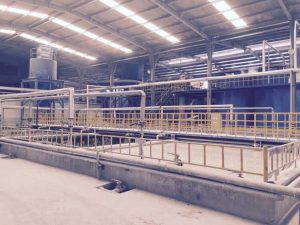

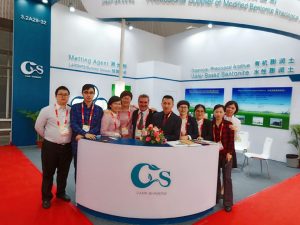
The Organoclay bentonite | Organophilic clay -specialized Zhejiang Camp-Shinning New Material CO.,LTD. and Hangzhou Camp-Shinning CO.,LTD. are subsidiaries of Camp-Shinning.
Camp-shinning concentrated on high value-added, high-technology organo bentonite series products, particularly in research, development, manufacturing, and sales of organic (solvent based organoclay) and inorganic bentonite (water based organoclay).
Our Organophilic bentonite clay finds widespread application in oil drilling mud, paint, coating, lubricating grease, adhesive, construction mortar, cosmetics, and waste water treatment, among other applications. A group of world-class professional users and distributors, such as SUN CHEMICAL,,SIEGWERK,LEHMANN &VOsS, and others, have acknowledged our dependable quality.
Current annual production of organic bentonite clay | organoclay is 20,000 metric tons, while refined bentonite production is 15,000 metric tons.
Our ISO 9001 quality system certification and IS014001 environmental management system certification, as well as our own mine with superior ore quality and production of proprietary technology, ensure the long-term quality and supply stability of our Organoclay bentonite | Organophilic clay.
Our mission is to provide users with superior Organoclay bentonite | Organophilic clay and services and to collaborate with them to achieve success and glory.
Internet address: https://www.rheologymodifiers.com/ and email address: [email protected]
Whatsapp / Wechat: +86-13185071071
Rheology Modifier Uses
There are numerous applications for rheology modifiers. The qualities of adhesives and other materials, such as flame retardance, are improved by these additions. Both little and large quantities of these additives are acceptable. Some of these additives are effective sources of flame retardance in addition to lowering the viscosity of the resin.
Rheology Modifier Uses | clay hectorite
Natural rheology modifier hectorite clay can be employed in a range of systems to enhance a liquid’s consistency. Due to its special characteristics, it is perfect for a variety of uses, including ceramics, fracking fluids, paints & coatings, and pharmaceuticals. It is a good additive to coatings and emulsions due to its hydrophobic characteristics.
The processing conditions that activate Hectorite clay have an impact on its rheological characteristics. Platelets delaminate and swell during its activation process in pure water, when sodium ions force the platelets apart. Hectorite clay has a higher low-shear viscosity and a longer edge length than bentonite clay. Hectorite clay hence exhibits a stronger thixotropic effect.
The high purity of hectorite clay improves its rheological characteristics.
The ability to thicken and suspend materials as well as stabilize compositions at low concentrations make it very useful.
The item’s velvety texture and pH neutrality make it ideal for a wide range of uses. Additionally, it gives skin care products a gentle blurring effect, making it a common ingredient in primers and face masks.
Hectorite clay has a high viscosity and thixotropy, both of which are required for a smooth, gel-like surface.
This quality is crucial for leveling behavior, proper gel structure recovery, and strong sag resistance. It’s crucial to remember that transparent coats cannot employ this rheology modification.
Rheology Modifier Uses
A class of additives known as rheology modifiers can be added to paint formulas at different phases of the manufacturing process.
High viscosity and resistance to shear thinning and sagging can be imparted by them. The overall stability of a coating layer can be strengthened with the aid of these compounds.
Sodium magnesium lithium silicates, which have good suspension characteristics, make up the majority of the clays.
They are present in elongated platelets, and wetting and shearing techniques are the best ways to work with them. Organic clays improve a polymeric coating’s adherence in addition to its rheological qualities.
Modifiers of rheology are a typical additive in almost every sector.
They can be used to modify viscosity, extend shelf life, and enhance processability. They can also be used to investigate and assess the effects of formulation changes. Rheology modifiers come in hundreds of variations on the market today.
A chemical known as an organic rheology modulator modifies a liquid’s viscosity at a specific shear rate. These additives can increase the consistency and coatability of paints.
A nice example of an organically modified rheology modifier with shear thinning and viscosity stability is CP-EW. This kind of rheology modification can increase film stability and weather resistance in both organic and inorganic pigments.
Modifiers of rheology can either be hydrophilic or hydrophobic. The application specifics will determine how these goods are used.
Organoclays Organoclays have good viscosity and yield because they are a great rheology modifier. They are also good at preventing ink from penetrating porous surfaces and misting. They can be used with gelled varnishes or used as a standalone addition. Modern organoclays have a more open structure and better dispersibility.
Rheology Modifier Uses
The two most typical organoclays are bentonite and smectite clays. They are both commonly utilized in paints and coatings with solvent bases. Bentonite organoclay is a functional alternative to smectite clay, which is favoured in polar systems.
Organoclays’ rheological characteristics can be strengthened by adding quaternary ammonium compounds of different molecular densities. Additionally, they are subject to ultrasonic modification. However, the goal of this inquiry was to create a technique that would improve the rheology properties of organoclays.
Rheology Modifier Uses made from Organoclays are specially manufactured clays with qualities that enhance the rheological characteristics of oils and other fluids. A hydrophilic clay and hydrophobic quaternary ammonium compounds are combined in this procedure. The organic component is disseminated and turns into a gel as a result of the quaternary amine’s ion exchange reaction with the sodium cations on the clay’s surface.
Rheology Modifier Uses
Special clays called organoclays can be added to paints to enhance the workability and application of thick coatings. Additionally, they have shear thinning qualities. These clays, when used sparingly, can help water-based paints settle better and prevent pigment pastes from seizing.
Organoclay Supplier / Manufacturer :
Internet address: https://www.rheologymodifiers.com/
Email address: [email protected]
Whatsapp / Wechat: +86-13185071071
Organophilic Clay Supplier / Manufacturer :

CP-180 organoclay is an organo clay rheological additive (modified montmorillonite) designed specifically for use in solvent-based systems

CP-34 organoclay is a modified bentonite that has been specifically designed for use in solvent-based systems.

CP-EDS modified bentonite is a kind of organo clay rheological additive. It is used in systems of medium polarity and high polarity system.

CP-992 Organophilic Clay, the wet process improved viscosifier and gelling agent . It is a rapidly dispersing.

CP-982 Organophilic Clay is an amine treated bentonite with a moderate temperature performance.

CP-150 Organophilic Clay is a self-activating organoclay that disperses easily and performs well in diesel, low aromatic mineral oil, modified vegetable oil, and synthetic base fluid formulations.
Rheology Modifier Uses